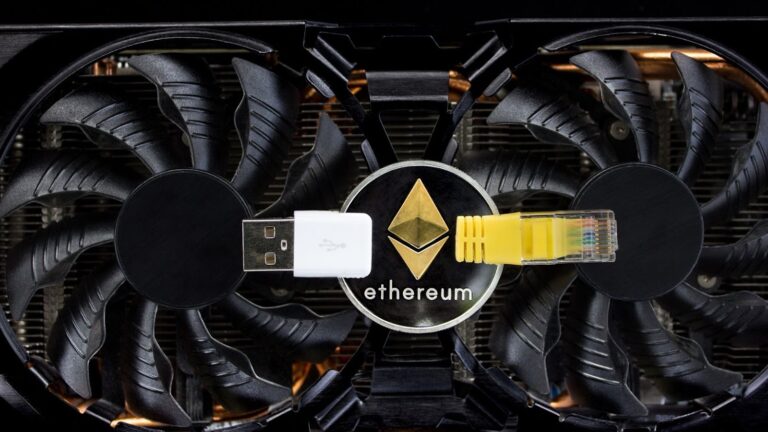Ethereum, the second most-known cryptocurrency ever, has differentiated from other coins on the market by providing and developing some of the best blockchain technologies. And given that Ethereum’s network is one of the most harmonized and developers as well as regular investors work together toward a better blockchain organization, the cryptocurrency has also improved.
Checking the price of Ethereum on Binance shows how its popularity surged soon after its market release. The cryptocurrency’s prices have remained stable, and Ethereum is currently among the best investments you can make, along with Bitcoin.
However, Ethereum is notable because it allows developers and other programming enthusiasts to use specific tools to create apps, programs, and NFTs. The blockchain’s features and applications were so appreciated that all network members worked to improve them. Therefore, the Merge occurred, and now Ethereum is more sustainable and faster. And more upgrades are planned to develop in the future.
Let’s see what makes Ethereum so special when it comes to technologies.
Smart Contracts
Ethereum’s best feature is automation due to the use of smart contracts. These programs allow the self-execution of specific actions which are agreed upon in a previous contract. Smart contract transactions are irreversible and trackable on the network, which makes them a reliable way to ensure everything goes smoothly between investors. These technological advancements don’t require any central authorities or legal systems to work but instead activate when both parties do their part of the agreement.

Smart contracts have many use cases. The first and basic one is to complete transactions between two parties, regardless of where they are. But as they developed, smart contracts have been introduced into many industries, such as lending, corporate governance, supply chain, healthcare, and more.
The benefits of smart contracts include efficiency, accuracy, and immutability. Therefore, all transactions done through them are fast, human-error-free, and cannot be altered under any circumstances. However, the only issue is that smart contracts still need a programmer to ensure the code address and contract terms are accurate, which can lead to problems. But overall, smart contracts are Ethereum’s best feature which has raised it from the competition.
Decentralized Applications
Decentralized applications (DApps) are exactly what the name implies: applications that don’t work in a centralized manner. Instead, they run on a distributed peer-to-peer network through a backing code, allowing users to interact directly with the decentralized application providers.
These open-sourced applications use blockchain-based tokens to run, and Ethereum’s DApps use ether as fuel for the decentralized applications to work.
DApps have plenty of use cases in different industries, such as the following:
- Supply chain management: DApps efficiently track the movement of goods;
- Real estate: DApps are used to facilitate buying and selling services;
- Healthcare: DApps help store and manage patient records;
- Education: DApps are great tools for creating decentralized learning platforms;
- Social media: DApps can help create decentralized social media platforms;

To complete most transactions and be reliable, DApps use smart contracts, which is the perfect technology blend on the Ethereum blockchain. As the network provides all the infrastructure needed for their creation, DApps are in continuous innovation.
DApps also have disadvantages, given they’re at an early development stage. For example, they’re currently challenging to scale, frequently leading to network congestion. At the same time, DApps don’t provide a great end-to-end experience as they’re difficult to create.
Decentralized Autonomous Organizations
Decentralized autonomous organizations (DAOs) are another unique feature of Ethereum’s blockchain. Like all blockchain applications, DAOs have no central legal authority and act like regular organizations with members who can use a special voting system that provides fairness.
These structures are used to make decisions within businesses in an organized management approach that is also decentralized.
Smart contracts also drive DAOs by dictating decision-making tasks. They’re also used in the voting system, which has been structured to incentivize the most active users. Therefore, those with the most voting power in the organization also own the most tokens of the DAO. The idea behind the practices was that if someone with an influential portfolio votes on a certain action, they can only do good for the organization.
DAOs are excellent blockchain applications because they:
- Are decentralized, so authority is distributed among many users;
- Cast votes publicly, which means that acts against the community are discouraged;
- Promote a solid community to take action and share similar goals;
However, DAOs have their limitations, such as inefficiency. That’s because a lot of time must be invested in administratively educating voters and onboarding new members, which leads to wasting time instead of rapidly implementing a change.
Real-world Ethereum Innovative Applications
All three features discussed above make Ethereum one of the best blockchain tools. More of these applications are found on the network, such as Ethereum’s Virtual Machine, but these also provide real-life use cases for companies.
One great feature everyone can use is the voting system on the blockchain. If used in real life, they can eliminate the usual issues with voting and bring more transparency, trust, and fairness, as voting malpractices will be impossible to plan.
Banking systems are also increasingly using more blockchain solutions because hackers are much more challenged to gain unauthorized access, making it inaccessible. At the same time, using the network allows for payments to be made faster and easier and facilitate international transactions. This leads to another benefit of Ethereum, simplifying agreements wherever customers are, which can also be recorded digitally in a safe place and accessed publicly.
Finally, deploying Ethereum in shipping companies allows the cargo to be tracked at all times and prevents the products from being misplaced or lost. The tracking framework would make shipping faster and less challenging for both workers and companies.
Final Thoughts
Ethereum’s most appreciated features are taking the world by storm. Smart contracts, DApps, and DAOs are the ultimate game-changer in the cryptocurrency industry as they allow developers to create applications and systems that can help companies leverage their tasks more leisurely as well as provide more fairness and transparency in worldwide transactions.




